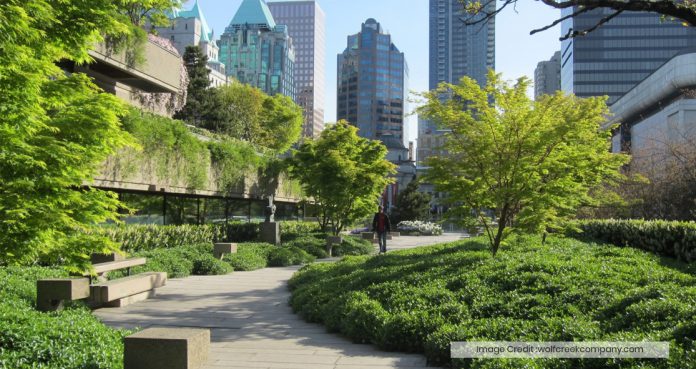According to a new study, city dwellers who live on streets lined with trees might be happier and healthier. Researchers found that those who lived in such areas reported less mental health distress and improved overall health over six years.
The study was conducted on roughly 47,000 urban residents.
However, green grass did not cut stress. Residents in more grassy areas reported poorer health than those surrounded by concrete.
The findings suggest that there might be something peculiar about trees when it comes to promoting health. Perhaps, people residing in streets with trees have more chances of indulging in exercise, walking, and recreation.
Kathleen Wolf, a research social scientist at the University of Washington’s College of the Environment in Seattle, said, “The bottom line – Trees seem to matter to our well-being.”
Wolf was not part of the study, She said, “It adds to a body of research finding a link between green space and better health.”
Last month, a UK study found that people who spent two hours a week outdoors reported improved physical and mental health than those who did not or preferred to spend time indoors.
Wolf said, “If you have one study showing an association, it gives you a heads-up. ‘Hey, this is an interesting finding.’”
She explained it suggests that something is there when multiple studies show the same pattern.
The social scientist added, “A strength of the new study is that it followed people over time rather than measuring well-being only once.”
The study found that city dwellers living on streets surrounded by trees were less likely to experience mental health symptoms such as nervousness, feeling hopeless, and unexplained fatigue.
There could be many other things associated with living in more greenish areas that make people happier and healthier. However, the study tried to account for weighing factors such as socioeconomic status, education levels, and marital status.
Even then, trees did matter to improved physical and mental well-being.
Wolf noted that tree-lined streets or parks may give people more opportunities to exercise, which is one of the most important factors associated with improved physical and mental health.
It has also been found that nature offers a great sense of perspective, making our daily stress less significant.
Wolf said, “Human beings tend to ruminate on the bad things that happen, rather than the good. Some of that mental playback may fade when you’re outdoors, with things to see, smell and experience.”
However, on the flip side, the study found that living near grassy areas was associated with increased distress and poor health. The researchers cannot reveal why this was so. Sjerp de Vries, a researcher with Wageningen University said, “Unlike grass, trees can make an area more walkable.”
The researcher said, “Trees are also more obvious. Tall trees, especially, make their presence known whether people are outside or inside.” “There is an argument to be made that trees are beneficial because they release chemicals called phytoncides, which may boost human immune function,” added de Vries.























